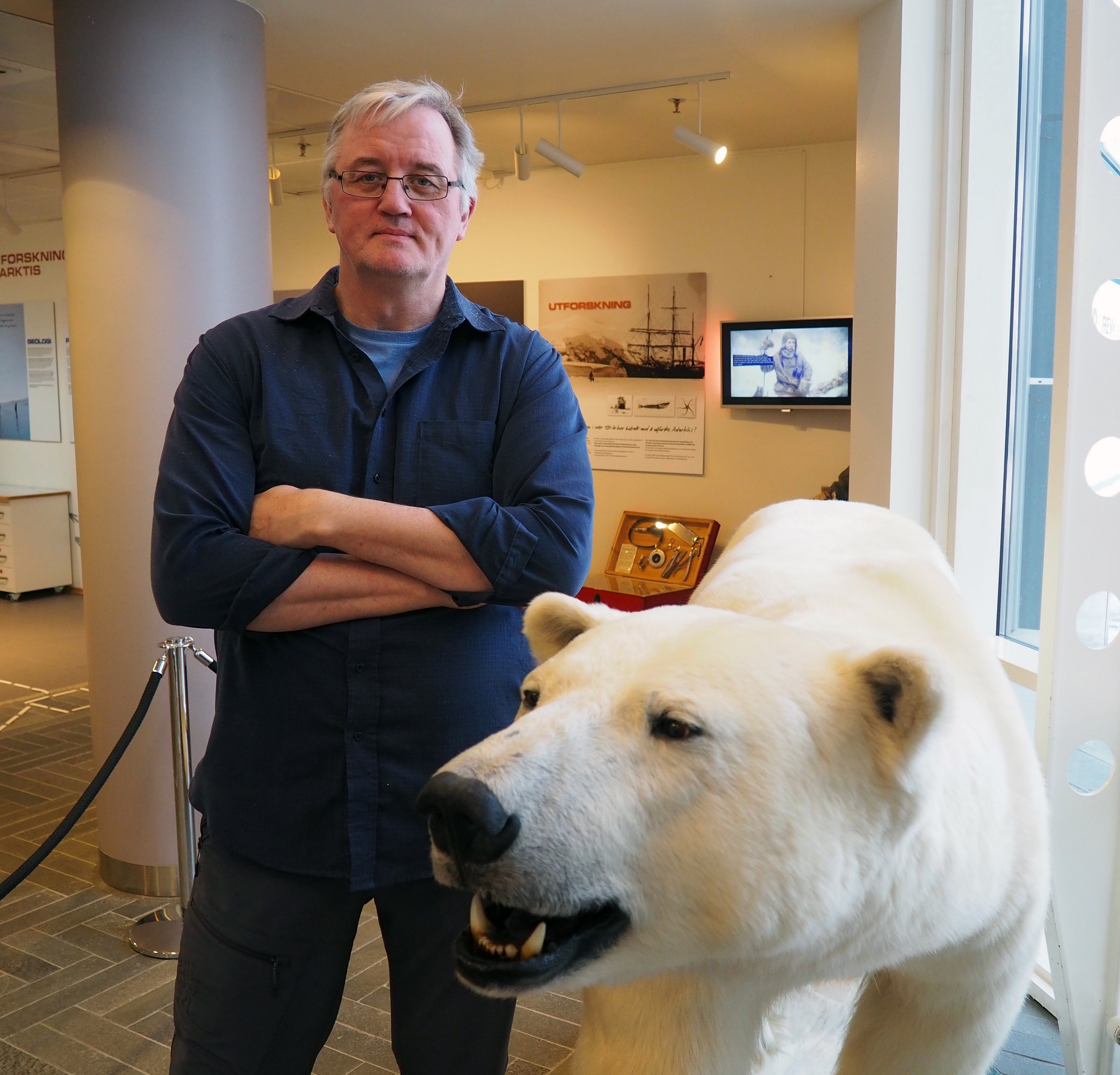Interview with Dag Vongraven, Chair of the IUCN SSC Polar Bear Specialist Group
Q: What inspires you to work in nature conservation?
I was inspired from early on. There was no alternative. When I finished high school, my father wanted me to be an engineer. I was admitted to the technical university as a petroleum engineer, which was a very hard path to access, but at the same time, I began attending general university and studying biology. So I chose the latter. Even then, at 19 years old going into petroleum engineering was not the alternative. I would have earned a lot more money than I do now but I would be a different person.
I’ve always been inspired by the environment, and especially, large carnivores were a fascination for me from early on. At university, I joined a group that worked with sea birds and also oil pollution, and then I started biology and it has always been that path.
When I began working with polar bears, as a part of my new job at the Norwegian Polar Institute (NPI) in 1997, I was volunteered into the Polar Bear Specialist Group by former NPI polar bear scientist and PBSG chair Andrew Derocher in 2001. I made the group’s first web page in 2002 and became chair of the group in 2010. All the time, nature conservation has been what has inspired me. My training is as a biology scientist, I used that along the way because I worked with killer whales as well. So I used the science training and science competence as a motivator. Now I’m working on a Ph.D. on polar bears, and I have the privilege to still be very curious, and it has been a privilege to work within the IUCN system.
Q: For World Wildlife Day 2020, this year’s theme is “Sustaining all life on Earth,” encompassing all wild animal and plant species as key components of the world’s biodiversity. Why is it important to sustain all wildlife?
I think it’s important to sustain all life because we are up to some very challenging times, and from an evolutionary perspective, it’s the variation that enables us to be able to change. I think you need to preserve all variations. If our gene pool is uniform, then there’s no capacity for change, and life would eventually go extinct. The other thing is that we have inherited a world that is really now showing us that it is finite. We can’t just do what we want. Everything happening with plastic pollution shows that we’re destroying the place we’re living in. I think the only way to look at life on earth is to look at everything that’s there and try to preserve it. I try the best I can to be a part of that, to preserve everything… wildlife and all life.
Q: What would you say are some of the greatest threats to the world’s wildlife?
Obviously, now it’s climate change. That’s the big one. It’s probably worse on the polar caps than in the world on average because you have the reinforcement mechanisms of sea ice disappearing. Of course, you have the traditional threats like habitat loss, extinction rates, and also legal and illegal hunting. But climate change is the main one. It’s a very complex picture, and there are lots of mechanisms that will threaten wildlife in different places. Population increase, the market economy, the concept that we need to grow. It’s a concept that we can’t seem to be able to get away from and it could eventually kill us. So there are many threats, and it’s hard to stay optimistic.
Q: What should countries and communities do to help protect wildlife?
It’s evident that we need some kind of major agreements, and we also need agreements on mitigation actions that have real impact. This is because we need to focus on actions that make a real difference. We are really good at making documents, policies, and engaging people and governments, but we need to be more critical of how we are achieving impact that we can observe.
It has really been a privilege for me to work in the Polar Bear Specialist Group, because polar bears are a very symbolic, strong species, and you become very hands-on with the work that group members, governments and agencies do, which is an exciting experience. In addition, there is a huge challenge in dealing with incredible amounts of noise associated with polar bear issues. Climate deniers, often supported by “big money” try to spread misinformation and cloud the issues, and I have looked at it as my mission to guard the integrity of the group’s members in order for them to be able to generate data and knowledge of high quality.
Q: 2020 is considered a ‘super year’ for the environment, with events such as the IUCN World Conservation Congress and the CBD COP. If you had one message that you would want addressed at Congress, what would you say?
Again, I would say to focus on actions that really have an impact. It’s critically important that we end up with agreeable actions that we know can have an impact. For polar bears, the main action would be to cut emissions of green-house-gases. If you don’t, the world will become warmer no matter what all these climate deniers tell you. As long as emissions continue, the world will be warmer. So we need to cut emissions. I appreciate that these meetings coming up this year will work on these challenges, and I would like to see more concrete action taking place that will have a lasting impact.
About the author

Dag Vongraven is senior adviser at the Norwegian Polar Institute and currently co-chair of the Polar Bear Specialist Group of IUCN’s Species Survival Commission. Vongraven has been involved with wildlife management in Norwegian Arctic, with special focus on marine species, polar bears included for over 20 years.
He has published papers in peer-reviewed journals on a variety of issues, and was the principal investigator during the development of the circumpolar monitoring framework for polar bears, published as an Ursus Monograph in 2012.
Vongraven has been deeply involved in the development of programs for circumpolar monitoring of biodiversity within the Arctic Council since 1998, he is active within the CAFF/Circumpolar Biodiversity Monitoring Program on many levels, he is a member of this program's marine mammal expert network, and he works to liaise the PBSG with other relevant circumpolar initiatives. Since 2015, he is also a PhD candidate at the University of Tromsø.



